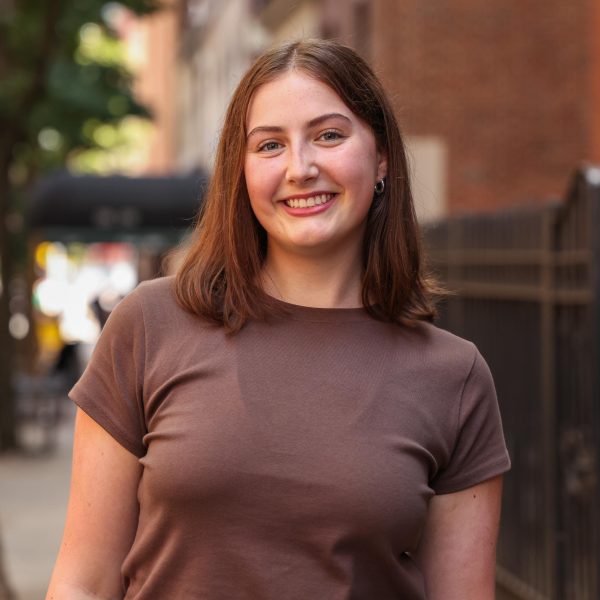Tisch Graduate Film alum ishkwaazhe Shane McSauby began his filmmaking journey in a high school class in Michigan. Now, McSauby’s films depicting modern Native stories — inspired by his experiences as a member of the Indigenous Anishinaabe group — have been featured at festivals including the Woodstock Film Festival, the Calgary International Film Festival and, most recently, the Toronto International Film Festival.
In an interview with WSN, McSauby discussed his origin in film, telling the stories of Native people and his film festival experience.
This interview has been edited for length and clarity.
WSN: What prompted your interest in filmmaking?
McSauby: I was always obsessive about movies. Me and my dad grew up in a working-class family, and there was a theater down the road from us that had $1 tickets. It was a second-run theater so we would go to the movies every weekend for very cheap. We didn’t really go on vacation, so it was just movies, movies, movies. My aunt also had this recorder, so she would record movies on tape and then send us boxes full of them, so it was just movies in all forms, all the time.
McSauby aspired to be an actor growing up until he picked up a camera during a film class in his senior year of high school. There, he discovered his passion for directing and decided to study film at Grand Valley State University.
After graduation, McSauby moved to New York City and wrote and directed his first short film titled “Mino Bimaadiziwin,” a love story rooted in Native cultural reconnection. In 2016, McSauby was selected for Sundance Institute’s Native Filmmakers Lab, workshopping the film with various film mentors and receiving a grant to produce it. Although he did not plan to attend graduate school, McSauby was inspired to apply to Tisch’s film program after meeting NYU professors and filmmakers Andrew MacLean and Reinaldo Green at the lab.
In his second year at NYU, McSauby began creating his film “Happy Thanksgiving,” a dark comedy about an Anishinaabe man. While he started editing the project in November 2019 and filming in early 2020, McSauby described entering a period of depression when the COVID-19 pandemic began that prompted him to stop working on the film. However, in 2022, McSauby reignited his work on “Happy Thanksgiving” and showcased the film at a screening hosted by the NYU film department.
WSN: How did the screening of ‘Happy Thanksgiving’ encourage you to rejoin the industry?
McSauby: I finished a cut, screened at this showing and the whole room was laughing throughout the entire thing, which is good. It’s the best feeling imaginable. I thought, ‘Whoa. Maybe there’s something to this.’ I continued to chisel away at it, and then I submitted it to a couple festivals. Now, it’s been at eight Academy Award-qualifying festivals. It’s been very nice and I’m very thankful that people dig it.
After seeing a few movies representing Native people in the modern world, McSauby said that he began wondering why there were not more films that showcase a cultural experience he resonated with — rather than a stereotypical depiction of Native people — in the industry when he was growing. He said that he draws inspiration from his childhood in Grand Rapids, Michigan, which harbors a large Anishinaabe population, with each of his films rooted in the stories of the Indigenous group.
WSN: What is important to you as a filmmaker who tells Native stories?
McSauby: There’s a lot of trauma in our histories and in our past, and those are very important stories, and I’m fully supportive of Native people telling those stories, but it’s just not for me. I’m more concerned with cinematic experiences of being at the edge of your seat, laughing or gasping, and I really want the audience to have big reactions to my movies. One of the beautiful things about cinema is that we’re put in the protagonists’ shoes regardless, and it’s sort of universal because there is a possibility to bridge gaps and create universal struggles.
Many of McSauby’s films have been screened at festivals dedicated to Indigenous and Native American film — including the imagineNATIVE Film and Media Arts Festival, the American Indian Film Festival and the Red Nation International Film Festival. Last month, McSauby attended TIFF to premiere “The Beguiling,” a dark-comedy short film and said he hopes to premiere it in the United States soon and create a feature-length version of the story. He also teaches introductory filmmaking, scriptwriting and editing as a full-time professor at his undergraduate alma mater.
WSN: What keeps you motivated as a filmmaker?
McSauby: Being able to see your film affect people the way that it’s supposed to — that’s really the most rewarding experience, is hearing stories like that. It’s a good reminder as to why I want to make movies, to have that effect on people. So many short films are only seen at film festivals, and it’s usually film nerds and critics that go to film festivals. What is most important to me is that just everyday people, everyday Native people, see it. If I can show it in those communities, all the best.
Contact Rory Lustberg at [email protected].
























































































































































